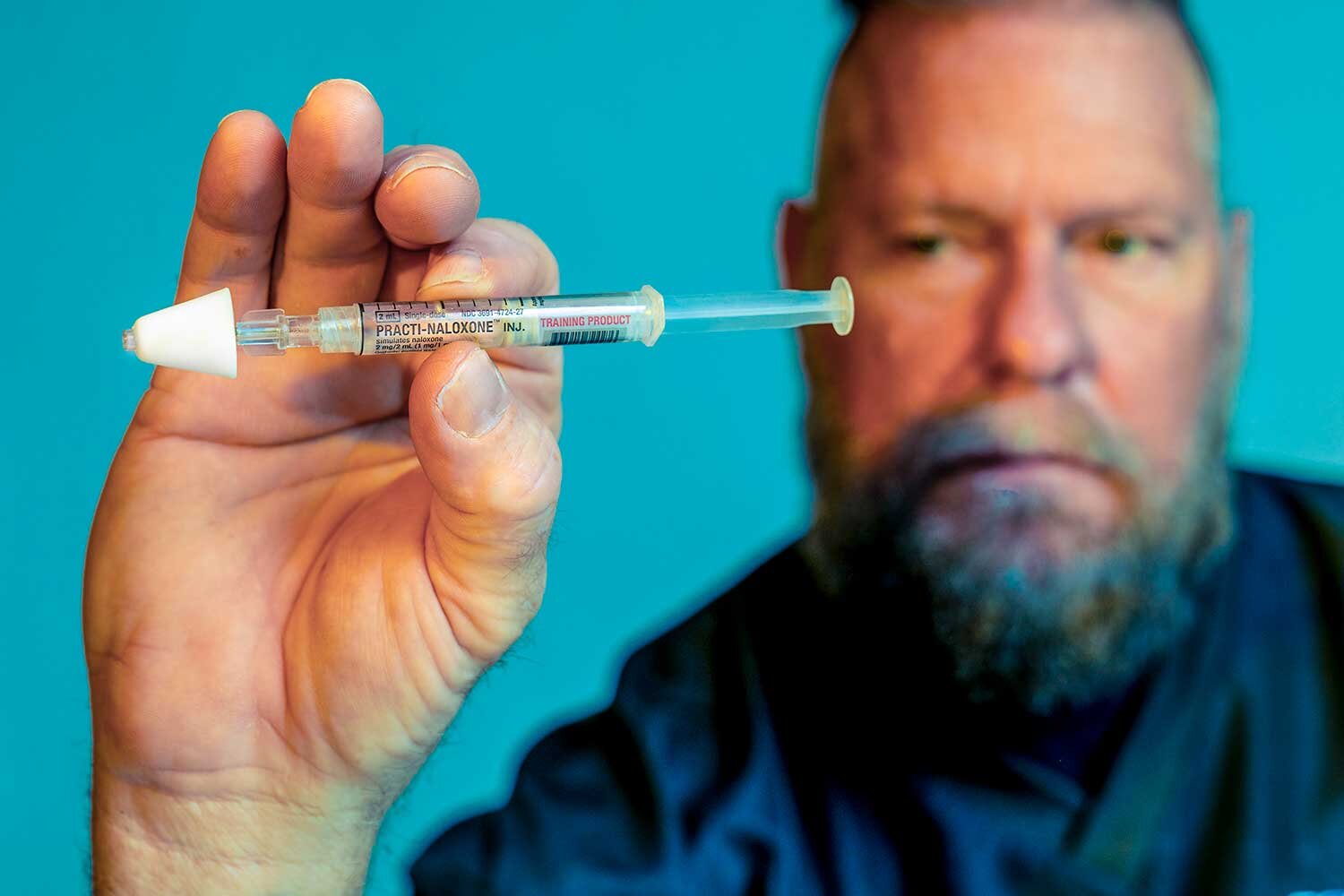Peering Back to Move Forward
This story originally appeared on klemagazine.com in February 2020. The article’s content has been updated.
February 17, 2017, was just a typical day, nothing special. I received an urgent voice message on my cell phone to call the local sergeant who currently supervised my old detachment. My day was soon to be anything but typical.
The message said, "Larry, this is Rob. Call me as soon as possible." Since retiring from the Washington State Patrol, I seldom get calls from former co-workers, and when I do, it is rarely good news. I returned the call and received news I never expected to hear..."Larry, Tim shot himself this morning."
My mind raced. How could this be? Tim was one of the best troopers who had ever worked under me. He was self-reliant and dependable. He possessed all the characteristics we searched for in a person to make them a trooper, and in a single instant, he was gone. Not by a criminal, not in a crash, not from a medical emergency, but by his hand.
Tim's untimely death was not my first experience with officers taking their own lives. It had happened several times throughout my 25-year career. It was the elephant in the room that we did not want to discuss. It’s an uneasy topic that tears at the very fibers of every officer and dispatcher's soul.
The loss of an officer or dispatcher is devastating to their families, co-workers and agencies. Research has shown that officers are more likely to die by their hands than any other line of duty death. Retirees are not excluded from this group.
According to BlueHelp.org, 228 officers took their own lives in 2019; 34 were retired. The Federal Bureau of Investigation reported that 48 officers died feloniously, and 42 died accidentally during the same period. A study conducted by Fairfax County Police and the United States Marshals Service Behavioral Analysis Unit in 2019 indicated that 4.4% of officers and 10.3% of dispatchers had thought about suicide within the past year.
Who is at risk?
Often, the most committed officers and dispatchers are at the highest risk of suicide. Job stress and lack of available mental health resources are contributing circumstances. Suicide most often occurs when stressors and other issues converge, creating a sense of hopelessness and helplessness.
Some studies suggest that rates of depression and post-traumatic stress disorder are five times greater among law enforcement officers than the public. Even when suicide does not occur, untreated mental health disorders can lead to poor physical health and impaired decision-making.
So why are officers and dispatchers reluctant to seek help? Stigma associated with seeking help, absence of command support, and, as mentioned earlier, a shortage of mental health resources, to name a few. In a profession where terms such as strength, vigilance, toughness, bravery and resilience are revered, suicide is a topic of conversation that is often avoided.
Officers and dispatchers may feel they do not have the support of their agency-command staff to seek help. Low human resources and inadequate budgets pressure law enforcement executives to do more with less. Officers and dispatchers may not disclose to supervisors the need for help for fear of retribution or loss of employment. Finally, many agencies lack funding to retain qualified mental health professionals. Most agencies are left to rely on employee assistance programs (EAP) for help with varying results.
Fortunately, for Kentucky officers and dispatchers, help is available. Since 2017, the Kentucky Post-Critical Incident Seminar (KYPCIS) has been providing officers, dispatchers and their spouses/significant others access to mental health professionals, and avenues to speak with law enforcement and dispatch peers that have experienced critical incidents. The seminar fills a void in care that officers and dispatchers are experiencing due to lack of resources and support.
If you are an officer or dispatcher who needs help, contact the Department of Criminal Justice Training or visit www.kypcis.com. For those we have lost, rest easy. For those still fighting, stand firm and hold the line. We have your back!




